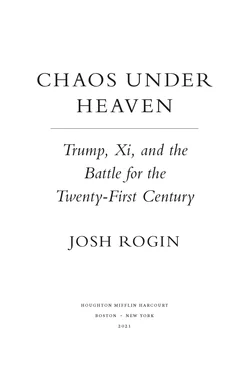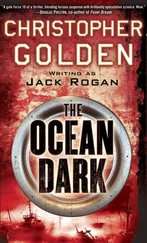Hong Kong Goes Under the Bus
Of course, the Uyghur activists, the Hong Kong protesters, the Christian community members, the political dissidents, and all the other groups protesting China’s worsening human rights practices knew they had a president who refused to give them even rhetorical support. Trump never missed an opportunity to miss an opportunity when it came to standing up for human rights, especially in China.
Trump’s first reaction to the nationwide student protests in Hong Kong against a new extradition bill, Beijing’s latest effort to violate its 1997 commitment not to suffocate Hong Kong’s freedoms and autonomy for at least fifty years, was to say, “I don’t want to get involved . . . We have human rights problems too,” according to Bolton’s recollection. Bolton also claimed Trump told Xi in a June 18 phone call that he had ordered all his officials to shut up about Hong Kong.
All you have to do is look at what happened next to know Bolton’s tale checks out. On July 8, Trump literally parroted Beijing’s line by calling the protests “riots” and promised to stay out of it. He noted that the Chinese government was said to be preparing for an all-out assault on the protesters but said it was none of his business. “That’s between Hong Kong and that’s between China, because Hong Kong is a part of China,” said the president. “They’ll have to deal with that themselves. They don’t need advice.”
That same day, the news broke that the Trump administration had barred the US consul in Hong Kong, career diplomat Kurt Tong, from giving a tough speech about the Chinese government’s actions in Hong Kong as his final message before departing the post. The State Department’s official statements were watered down to the point of uselessness, not condemning the growing crackdown, but calling on Hong Kong authorities “to ensure proper consultation” and “take into account the significant concerns” of the Hong Kong people.
Pompeo, clearly champing at the bit but not wanting to contradict the boss, walked up to the line of Trump’s patience but still had to talk in gentle tones. On July 29, as the preparations for a crackdown mounted and tensions rose, Pompeo said Chinese authorities should “do the right thing” and maintain Hong Kong’s autonomy. The next day, on his way to Southeast Asia for a diplomatic conference, he said, “These are the people of Hong Kong asking their government to listen to them. So it’s always appropriate for every government to listen to their people.”
By early August, it looked like Beijing was prepping for a Tiananmen Square-style massacre in Hong Kong, massing thousands of police and military troops just across the border. Chinese propaganda outlets were spreading videos of People’s Liberation Army troops using machine guns against protesters, with the social media tagline, “A blunt warning for #HongKong secessionists and their foreign backers?”
By October, as the streets and universities in Hong Kong burned, the mood in Congress over China had turned very sour. More and more Republican senators were publicly breaking with Trump on Hong Kong. For example, Trump marked the seventieth anniversary of CCP rule by tweeting, “Congratulations to President Xi and the Chinese people on the 70th Anniversary of the People’s Republic of China!” Senator Josh Hawley’s statement read, “Seventy years ago, the Chinese Communist Party seized power from the Chinese people. Since then, its ruthless rule has resulted in the deaths of millions of its own citizens.”
Multiple officials noted at the time the absence of the American billionaire “friends of China,” who were supposed to have close relationships and influence inside the top tiers of the Chinese system. None of them spoke out in public (or, as far as we know, in private either) to explain to Chinese leaders that violently crushing a student movement for basic rights on international television was a bad look.
These folks were too busy lobbying the administration and Congress against taking action that would harm their business interests and Beijing’s business interests—and their efforts paid off. I learned in early November that Trump and Mitch McConnell had been intentionally thwarting the progress of the Hong Kong Human Rights and Democracy bill, which the Senate Foreign Relations Committee had approved unanimously two months prior.
When I wrote a story for the Washington Post on November 7 entitled “Trump and McConnell Are Failing the People of Hong Kong,” Chuck Schumer took the article to McConnell’s office and laid it on his desk in front of him. For McConnell, this was particularly embarrassing because he had helped pass the law in 1992 that originally established US support for Hong Kong’s autonomy and in August he had penned a now hypocritical-looking op-ed in the Wall Street Journal endorsing the bill, entitled “We Stand with Hong Kong.”
A week later, Senators James Risch and Marco Rubio started the process to pass the bill by unanimous consent. No senator objected, and the bill finally passed the Senate. In the House, the vote was 417–1, with only Rep. Thomas Massie voting no. Trump reluctantly signed it and attached a signing statement reserving his right not to enforce any part he didn’t agree with. In an appearance on Fox and Friends before he signed it, Trump said he had considered issuing a veto.
“We have to stand with Hong Kong, but I’m also standing with President Xi,” he said. “He’s a friend of mine.”
US-China relations were spiraling downward throughout the first half of 2019, as the factions on each side of the relationship working to forge a new consensus seemed to be failing and the hardliners on each side seemed ascendant. China’s actions internally and externally showed a new boldness, and the Trump team was struggling to respond without clear guidance from the commander in chief.
Trump had wanted to take a tougher approach toward China, but he hadn’t wanted the relationship to actually unravel. He still wanted to make a deal. And his leverage was slipping away. The closer Trump got to his election, the more he needed that deal to run on—and Beijing knew it.
12
Waking Up
In the third year of Donald Trump’s presidency, as US-China relations continued to sour amid the ongoing trade war, the escalating tech war, and the growing furor around Beijing’s ever less subtle efforts to influence Americans’ conversations about China, a new set of clashes emerged. As was so often the case, these were internecine skirmishes on the US side—but the clamor they created would help to raise awareness about China’s interference and attract support for a more muscular response by Washington to Beijing’s aggression. Slowly but surely, America was waking up to the China threat, even if some of its people and institutions—and leaders—would have preferred to remain asleep.
The domestic implications of Chinese Communist Party (CCP) power meant that the US-China competition was no longer just the State Department’s turf. National security and law enforcement agencies were becoming a bigger part of the China relationship and setting China policy more than ever before. More and more parts of the machinery of the US federal government were reorienting to confront China.
Specifically, more and more officials were beginning to comprehend not only the degree to which China was having a chilling effect on American freedoms but also what the Chinese government was doing on US campuses, how they were interacting with Silicon Valley, and how they were involved in our stock exchanges and capital markets. US policy toward China was changing fast, and the academic universe, the tech sector, and Wall Street found themselves caught up in a chain of events that affected them but that they were struggling to understand, much less navigate.
Читать дальше











